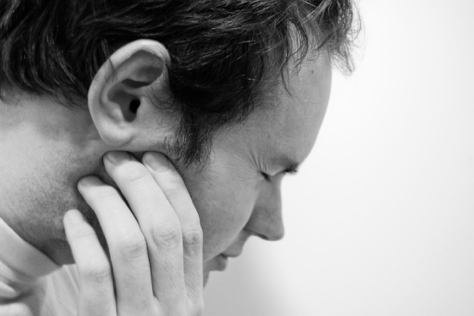What is some of the latest data on tinnitus? Many people, especially adults, experience the tinnitus symptoms. In fact, an estimated number of 3.4 million people suffer from tinnitus. Not to forget, 56.1 percent of these adults are experiencing tinnitus for more than 5 years. On the other hand, tinnitus is affecting the remaining for over 15 years.
While tinnitus can affect people of all ages, adults mostly fall victim to this hearing condition. You can notice a direct correlation between increased severity of symptoms and people over the age of 51. Let’s see what tinnitus really is and whether you need to see a doctor for your tinnitus.
What is Tinnitus?
Simply put, tinnitus is a hearing condition that affects a person’s ability to hear a sound that has no external source. Normally, we are able to hear and recognize sounds when a certain thing in our surrounding environment sends sound waves towards our eardrums.
However, people suffering from tinnitus can hear sounds that do not have an external source. Many people happen to hear a ringing sound in their head whereas others also experience sounds like roaring, chirping, hissing, whistling, and humming, etc.
If you’re suffering from tinnitus, you might hear such sounds in one or both your ears, or even inside your head. Some with tinnitus can hear a sound coming from a distance. The sound(s) can be intermittent, constant, or pulsating. In fact, the symptom can vary from person to person.
More often than not, symptoms of tinnitus are very subjective but it can also be objective at times. This means that other people are also able to hear your tinnitus with you. For example, you might be hearing a whooshing sound in case you have a heart murmur. So, your doctors can hear such tinnitus with the help of a stethoscope.
One common type of tinnitus is pulsatile tinnitus that normally affects older adults. Pulsatile tinnitus is characterized by a heartbeat in the ears that usually becomes more prominent and noticeable during the night. In case you experience pulsatile tinnitus in your bed at night, consult a doctor for a tinnitus checkup. This type of tinnitus in older people can also be a sign of blood vessel damage or even a tumor.
What Causes Tinnitus?
Although tinnitus can affect people for long periods of time, almost everyone experiences it at some point of their life. You may experience symptoms of tinnitus for a short time after you’re exposed to loud noise, like at a concert or a party. This type of short term tinnitus can go on for 2 to 3 days.
Other common causes for tinnitus are:
Hearing Loss
Your inner ears have small hair cells called cochlea that move when met with sound waves. As your ear receives sound waves and movement of cochlea takes place, ears send electrical signals along the auditory nerve towards your brain. You are finally able to hear when the brain interprets these signals. Tinnitus can be a symptom of hearing loss if you have a broken or bent cochlea.
Ear canal blockage or infection
Ear canal blockage and ear infection can both contribute to tinnitus. Cerumen or fluid buildup from an ear infection can block your ear canal creating pressure in your ear. As a result, you might experience symptoms of tinnitus.
Head and neck injuries
Oftentimes, an injury of the head or neck can damage your ear and associated parts and functions. It can affect your inner ear, brain function that is linked to hearing, and auditory nerves. Such injuries can lead to tinnitus, usually in one ear only.
Medications
Tinnitus can also be a result of certain medications. Various medications can trigger or worsen tinnitus, especially in case of high doses. These medicines normally include NSAIDs, diuretics, antibiotics, antidepressants, and cancer drugs.
Latest Data on Tinnitus: Bottom Line
Although tinnitus does not indicate a serious health risk in most cases, it can also be associated with nerve damage or tumor. Therefore, it is important to seek professional medical help if your symptoms of tinnitus prevail longer than a few days.
If you’re looking for the top tinnitus treatment specialist in New York, speak with Stephen Geller Katz, LCSW-R at the Tinnitus Cognitive Center™. Dr. Katz possesses over 20 years of clinical patient experience and provides excellent Tinnitus Cognitive Retraining Therapy.
Call Dr. Katz and schedule an online tele-session today:
Stephen Geller Katz, LCSW-R
19 West 34th Street
Penthouse Floor
New York, NY 10001
646-213-2321


